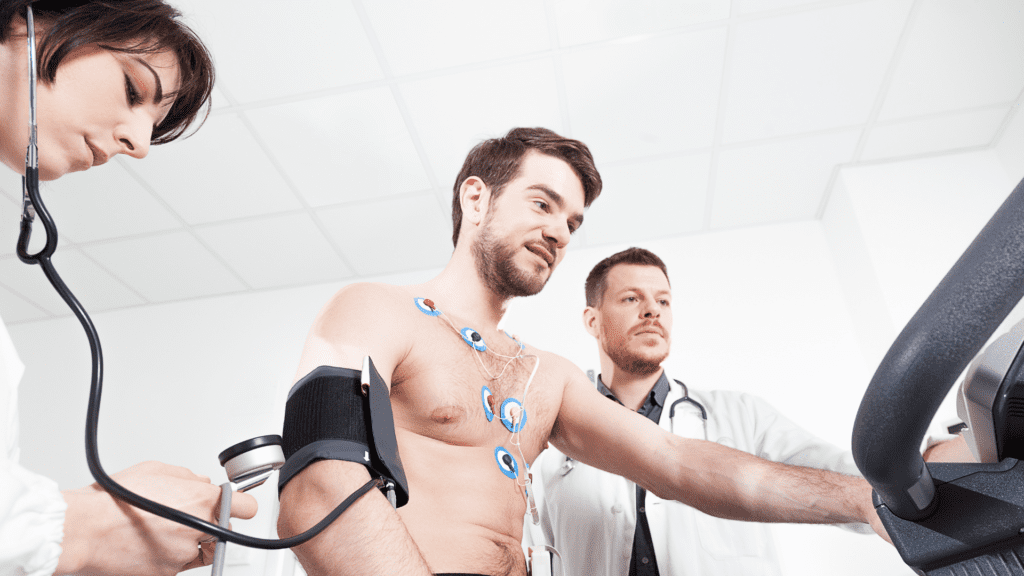The Importance of Diagnostic ECG Systems
Computer ECG Systems are used to detect heart abnormalities and cardiovascular diseases. By detecting the heart’s electrical signals, an EKG system can produce a graph of these signals that can be interpreted by an Educated Cardiologist.
The digital and visual interpretation of ECG Heart Signals allows for the prevention and detection of many heart diseases. From Hypertrophy to early signs of Heart Attack, the ECG is the Cardiologists most Powerful Diagnostic Tool.
Many Hospital Cardiovascular Units require an ECG to be done when accepting a patient thought to be experiencing a Heart Attack. The Resting EKG Test with it’s common duration of 30 seconds makes it an extremely quick test to run. This emergency test allows doctors the knowledge of what part of the heart is failing, so that they may be able to decide what interventional measures must be taken to save the patients life.
ECG Systems can be used by those certified to use them. These include, ECG Technicians, some specialty nurses, and cardiac nurses. The education needed to use these systems allows the user to understand how to connect a patient to the lead cables, how to start the EKG Tests, and how to use the Cardio-Diagnostic Software enough to at-least produce a good quality test for the overreading of a Cardiologist.
Resting ECG Systems are most commonly used in the screening of Cardiovascular Disease. These screenings are done on those who are found to possibly be at risk for a heart disease, or for those who request to be screened for heart disease because it is in their family.
Resting ECG Tests allow for the prevention of suffering. These systems are able to find signs of heart disease early, before the disease causes any pain or complications. This fact makes this test the most highly government reimbursed medical test in the USA.
Stress ECG Systems are used on those who complain of a cardiovascular event during physical activity, walking, taking the stairs, or during an athletic activity. This test allows a doctor to monitor the heart during physical activity, and identify what issue the patient has complained about. This can save the life of athletes in the world of sports medicine, and the elderly having issues going for walks or up stairs.
Holter ECG Systems are used on individuals with rarely occurring chest pain or weakness. These devices are wearable for up to five days and continuously record the heart. Many of these devices including the Nasiff CardioHolter Device, include an Event Recording Button that a patient can press when they are experiencing the rare cardiac event. This system and it’s features allow for the reading of days worth of heart rhythm and cardiac events, giving doctors a wide view of a patients cardiovascular health.
Vitals ECG Systems are used in Ambulances, Hospitals, Cardiovascular Units, and Heart Centers. These Systems Record a patients vital signs (heart rate, blood oxygen, and blood pressure) giving a doctor a complete visual of an individuals health. The Nasiff Vitals ECG System also comes with a full 12-lead EKG inside at no extra cost, allowing for the complete cardiovascular diagnosis of a patient upon arrival.
Automated Blood Pressure, SP02, and Continuous ECG are a few features of the Nasiff CardioVitals System. These features tied with the fast starting Computer Diagnostic Technology, technicians in the field no longer have to wait on system start ups, and can have a system running in 15 seconds, and all tests complete within 30 seconds, if the use of the system is practiced enough. This increase in diagnostic technology greatly surpasses most of what is in the field today, and is a clear increase in medical technology available to the industry as a whole.
View All of Nasiff Associates CardioCard Diagnostic ECG Systems.


 “
“